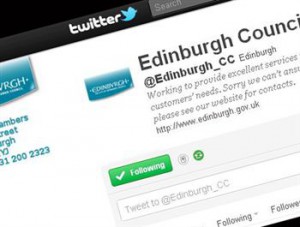
ONE of Scotland’s most controversial councils has egg on its face after a bid to engage with residents on Twitter backfired.
Edinburgh – a city now notorious across the UK for the trams fiasco – decided the social media site was a good way to build bridges.
So staff spent 24 hours Tweeting updates, telling their followers about everything from a special session at a local library to the number of school meals prepared for the area’s schools.
But the experiment went wrong as disgruntled and long-suffering residents used Twitter to bombard the council with criticism.
In response to an official informing them “Edinburgh Council Customer Services are here to answer your queries until 4pm”, one tweeter asked: “Does that mean you ‘knock off’ at 4pm? Typical Public servants!”
The new service was even attacked by prominent psychologist Richard Wiseman, who wrote: “Edinburgh council run 24hr Twitter event to show how they work. No, I don’t give a s*** either.”
Hashtag
Another user, Kt_Leung, simply asked: “Who do I contact to express my disgust towards Edinburgh City Council?”
@favorit0409 complained: “@Edinburgh_cc have ruined the city.”
And @DIL23 complained the city council do not maintain the roads, branding officials “muppets”.
Council staff used a special Twitter “hashtag” – a way users can track a topic – called “#whatwedo”.
But fed-up residents started their own discussion under the tag “#whatwedontdo”.
However the council defended the trial, saying most users had appreciated it and it was proud to be experimenting with social media.
They said the 4pm cut off referred to the end of a two hour session where customer services would log the complaints made via Twitter and that other staff could respond outside those hours, directing customers to other resources if appropriate.
A council spokesman said: “The feedback that we get from many users shows that they welcome this form of communication and appreciate us trying to innovate.”

